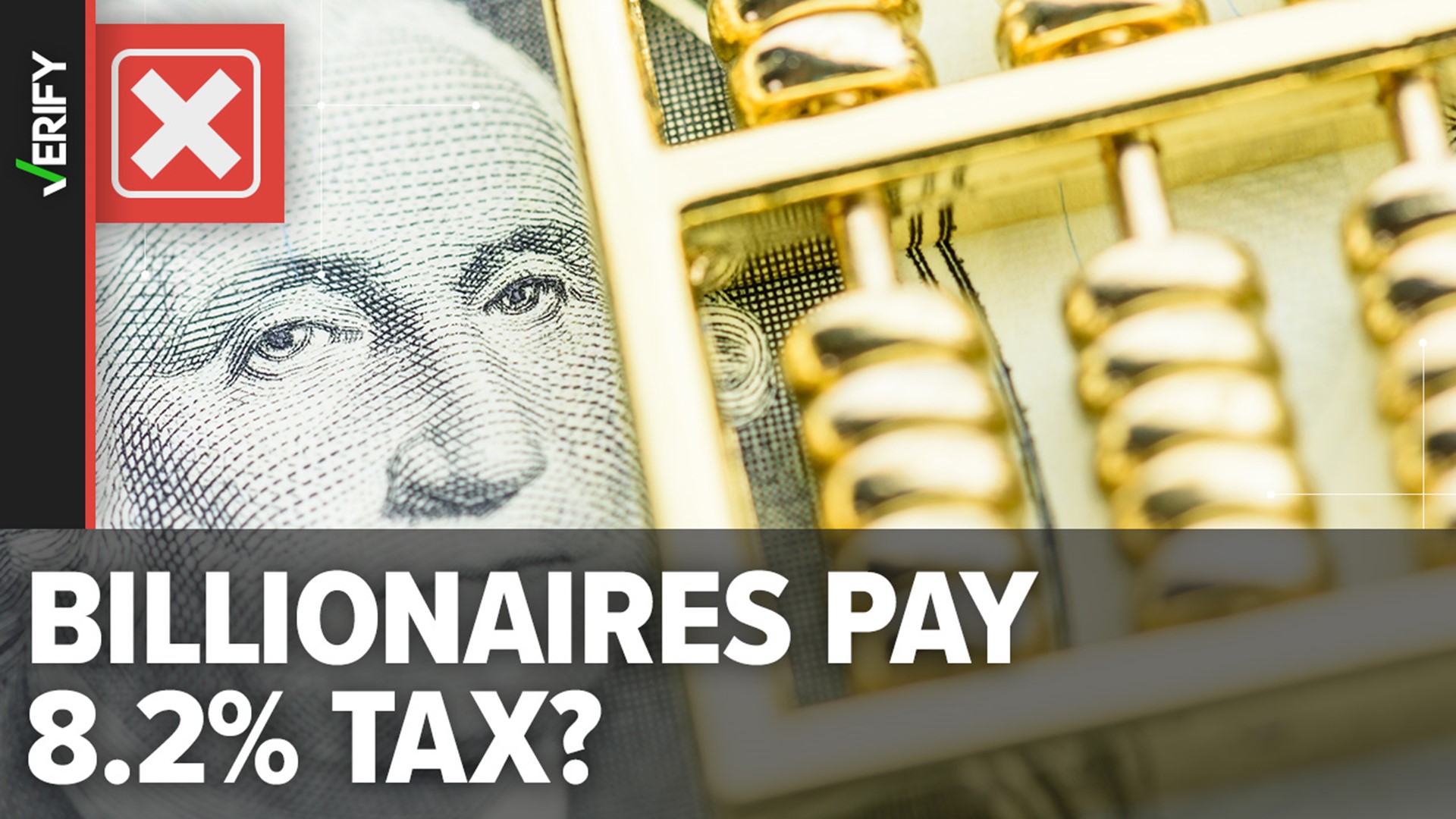President Joe Biden has repeatedly called on Congress to enact a minimum tax rate of 25% for billionaires in the United States, claiming it would raise $500 billion over the next 10 years.
Biden claimed during his State of the Union address on March 7 that the “average federal tax rate” for billionaires is 8.2%. The White House shared the same claim in a viral post on X during the address. Biden repeated this claim again during his speech at the Democratic National Convention on Aug. 19.
VERIFY dug into the data to find out whether this figure is accurate.
THE QUESTION
Do billionaires pay an average of 8.2% in federal taxes?
THE SOURCES
- Report published by White House economists in 2021
- Internal Revenue Service (IRS) report on top 400 individual income tax returns
- Vanguard, an investment management company
- Erica York, senior economist and research director for the Tax Foundation’s Center for Federal Tax Policy
- Howard Gleckman, senior fellow at the Urban-Brookings Tax Policy Center
THE ANSWER
Billionaires do not pay an average of 8.2% in federal taxes. The 400 wealthiest American taxpayers actually pay an average federal income tax rate of around 23%.
WHAT WE FOUND
Billionaires do not pay an average of 8.2% in federal taxes, as Biden claimed. The top 400 wealthiest American taxpayers actually pay an average federal income tax rate of about 23%, according to the most recent IRS data from 2014.
In comparison, the average income tax rate for all taxpayers in 2020 was 13.6%.
So where does the 8.2% number come from?
When Biden mentions the billionaire tax rate, he’s referring to a White House estimate of taxes paid by the top 400 wealthiest American families that includes the increase in value of unsold stocks, or “unrealized” gains, in a person’s total income.
“Gains that are ‘on paper’ only are called ‘unrealized gains.’ For example, if you bought a share for $10 and it's now worth $12, you have an unrealized gain of $2. You won't pay any taxes until you sell the share,” Vanguard says on its website.
The 2021 analysis from White House economists estimated that from 2010 to 2018, the 400 wealthiest families paid an average of 8.2% in federal taxes on their income using a formula that includes unrealized gains.
But that’s not the way the U.S. tax system currently works. These “unrealized” gains are “generally not considered taxable income,” experts with the Urban-Brookings Tax Policy Center say.
Howard Gleckman, senior fellow at the Urban-Brookings Tax Policy Center, told VERIFY that Biden is “accurately describing” the taxes that wealthy Americans may owe “under a theoretical tax system.”
“But he is not accurately describing the taxes that they owe under the tax system that we actually have,” Gleckman added.
The White House’s hypothetical calculation “results in an income tax rate lower” than what is “typically estimated for top earners,” Erica York, senior economist and research director for the Tax Foundation’s Center for Federal Tax Policy, said.
The White House says they understand 8.2% isn’t the actual income tax rate that the 400 wealthiest families pay on their returns. They say unrealized gains are included to generate a “more comprehensive measure of income.”
In a blog post about the analysis, the White House wrote that “untaxed capital gains income is dramatically smaller than wage income for most families,” but it “looms large for the wealthiest 400 families.” About half of Americans don’t own any stock, including in retirement accounts, the White House said. If a person does own stock and sells it after at least a year, those gains are taxed at a lower rate than ordinary income.
“Analyses that ignore this type of income from wealth for billionaires will necessarily overstate their real income tax rates,” the White House said.
The White House also explained that some assets that increase in value may be passed on through generations without being taxed.
This is because of a tax provision known as stepped-up basis. The Center on Budget and Policy Priorities explains that if a person holds on to an asset like a stock and “passes it on to an heir instead of selling it,” neither the investor nor their heir “owes capital gains tax on its increase in value during their lifetime.”










